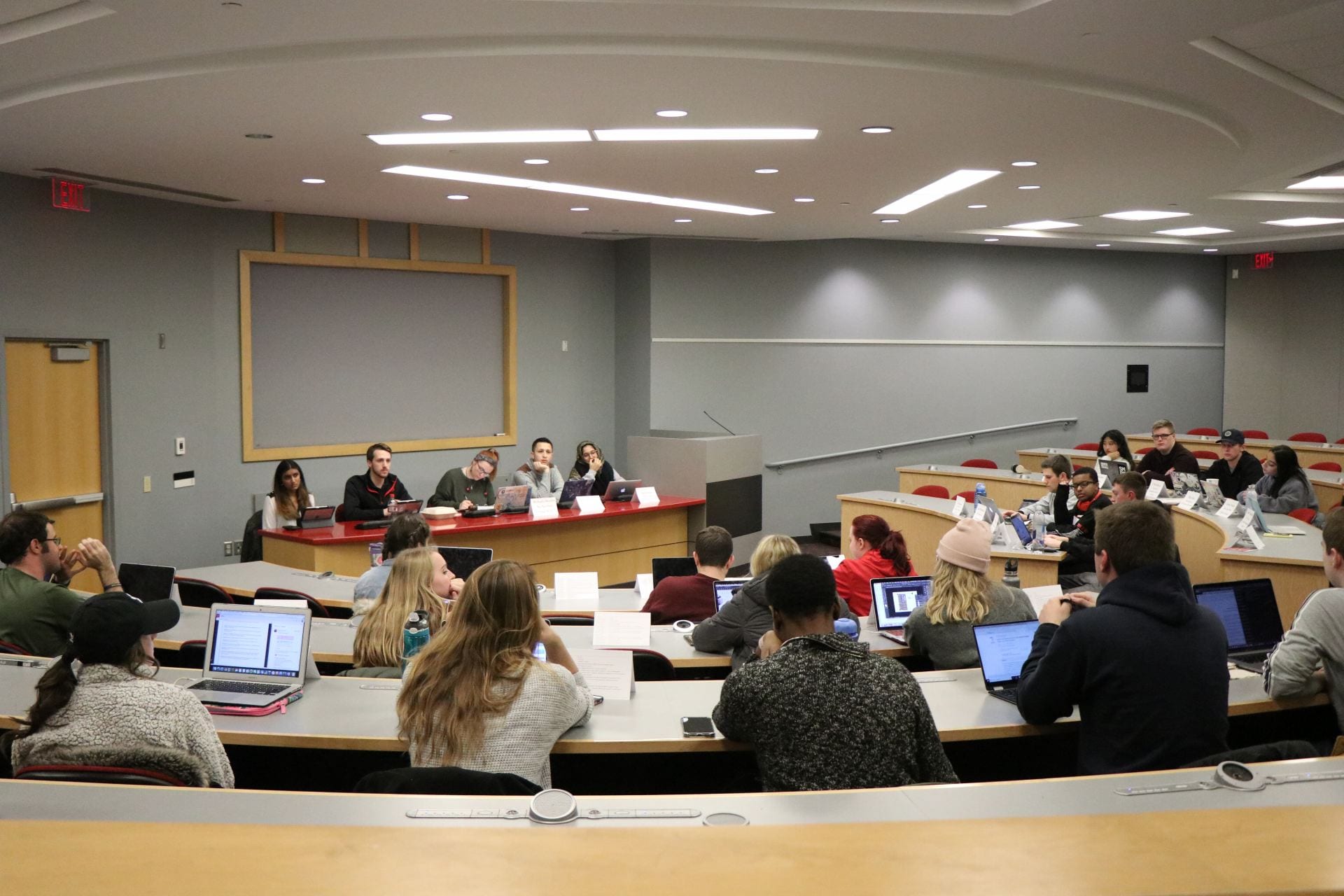
Two Undergraduate Student Government justices avoided impeachment Wednesday in a nearly two-hour deliberation. Credit: Casey Cascaldo | Lantern file photo
Undergraduate Student Government’s last General Assembly session concluded the semester with a debate on the impeachment of two justices accused of not respecting the impact of COVID-19 in drafting rules for the next USG election.
USG Chief Justice Joshua Badzik and Justice Ryan Miller avoided impeachment by secret ballot Wednesday by a vote of five yes, 18 no and one abstention. Badzik, a third-year in economics and public policy, and Miller, a fourth-year in political science, were accused of not considering COVID-19 precautions when creating the USG election bylaws for spring semester and failing to sufficiently protect the student body during the coming election process.
Throughout the deliberation, multiple senators stated there were no grounds for impeachment outlined in the General Assembly’s standing rules and there is little precedent for a formal impeachment in the history of the USG at Ohio State. According to USG’s bylaws, grounds for impeachment align with those laid out in Robert’s Rules of Order, the standard guide to parliamentary procedure.
But five senators said they felt impeachment was appropriate because the Judicial Panel ignored requests made by the body.
“During the process of attempting to approve these bylaws, the judicial panel continued making really small changes without ever making an effort to put in the changes that we as a General Assembly asked for,” Abigail Berk, a senator representing the College of Medicine Sciences and chair of the Health and Safety Committee, said.
Berk, a second-year in biomedical science, along with Senators Delaney Durham, Keith Watson, Olivia Schaffer and Halle Nahoum drafted the impeachment resolutions.
Berk said she and other senators requested the bylaws mandate a completely virtual election and specifically mention the COVID-19 pandemic. She said the absence of these demonstrated a lack of willingness to compromise.
“We were forced to accept these bylaws because we were moved to basically have an ultimatum. ‘Accept these bylaws that we don’t really agree with or go back to the original bylaws that don’t mention COVID-19 at all,’” Berk said. “We were stuck between a rock and a hard place.”
Badzik said the accusations against him could be worked out in other ways.
“In regards to the allegations in the resolution itself, to me, it constitutes a disagreement in policy which I respect,” Badzik said. “I am willing to listen to disagreement and converse with it even if I don’t share the same viewpoint, but I don’t think that type of disagreement should constitute impeachment.”


